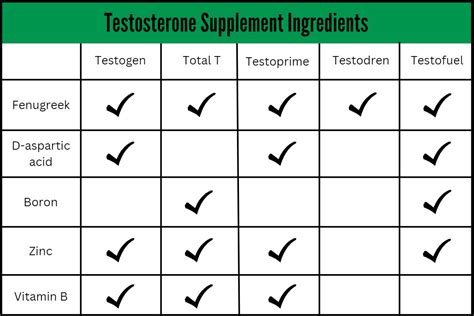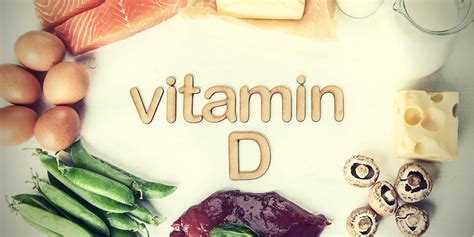Which micronutrients are commonly linked to maintaining healthy testosterone levels in men?

The Crucial Role of Micronutrients in Male Hormone Health
Testosterone, the primary male sex hormone, is vital for various bodily functions, including muscle mass and strength, bone density, red blood cell production, fat distribution, and libido. While its levels naturally decline with age, certain lifestyle factors, particularly nutrition, can significantly impact its production and maintenance. Among the many components of a healthy diet, specific micronutrients stand out for their direct and indirect roles in supporting healthy testosterone levels in men.
Understanding which vitamins and minerals are most influential can empower men to make informed dietary choices or consider targeted supplementation under professional guidance. It’s not just about consuming enough calories; it’s about providing the body with the specific building blocks and cofactors it needs for optimal hormonal balance.

Zinc: An Essential Mineral for Testosterone Production
Zinc is arguably one of the most critical minerals when it comes to male hormone health. This trace element is involved in over 300 enzymatic reactions in the body, many of which are directly related to testosterone synthesis and regulation. Studies have shown a strong correlation between zinc deficiency and low testosterone levels.
Zinc contributes to testosterone production by preventing its conversion into estrogen, and it plays a role in the function of the Leydig cells in the testes, which are responsible for producing testosterone. Furthermore, zinc acts as an antioxidant, protecting these cells from oxidative damage. Rich sources of zinc include red meat, shellfish (especially oysters), legumes, nuts, seeds, and dairy products.
Vitamin D: The Sunshine Vitamin and Hormone Precursor
Often referred to as the ‘sunshine vitamin,’ Vitamin D is actually a pro-hormone, and its deficiency is widespread. Emerging research highlights its significant impact on testosterone levels. Vitamin D receptors are found in Leydig cells, suggesting a direct role in testosterone production. Several studies have indicated that men with higher Vitamin D levels tend to have higher testosterone levels.
Exposure to sunlight is the primary way our bodies produce Vitamin D. However, dietary sources like fatty fish (salmon, mackerel), fortified milk, and eggs can also contribute. Given its widespread deficiency, supplementation is often recommended, particularly in regions with limited sunlight or for individuals with restricted sun exposure.

Magnesium: Supporting Free Testosterone
Magnesium is another vital mineral that plays a role in hundreds of biochemical reactions in the body, including those that affect testosterone. Research suggests that magnesium can increase both total and free testosterone levels. Free testosterone is the biologically active form of the hormone, not bound to sex hormone-binding globulin (SHBG).
Magnesium achieves this by reducing the binding of testosterone to SHBG, thereby increasing the amount of free testosterone available. It also contributes to better sleep quality and reduced stress, both of which indirectly support healthy hormone levels. Good dietary sources of magnesium include leafy green vegetables, nuts (almonds, cashews), seeds, whole grains, and dark chocolate.

Other Notable Micronutrients and Their Roles
While zinc, Vitamin D, and magnesium are primary players, several other micronutrients also contribute to overall hormonal health:
- Boron: Some studies suggest boron can influence sex hormone levels, potentially increasing free testosterone by reducing SHBG and estrogen.
- Selenium: An antioxidant that supports thyroid function, which is intricately linked to hormone balance. It also plays a role in reproductive health.
- Vitamin K2: Emerging research indicates it may be involved in testosterone production and synthesis, alongside its well-known role in bone health.
- B Vitamins: Essential for energy production and many metabolic processes, indirectly supporting overall endocrine function.

Dietary Strategies and Considerations
To support healthy testosterone levels through nutrition, prioritize a diet rich in whole, unprocessed foods. Incorporate a variety of the micronutrient-rich foods mentioned above. While supplementation can be beneficial, it’s crucial to consult with a healthcare professional before starting any new regimen. They can assess your current levels, identify any deficiencies, and recommend appropriate dosages, as excessive intake of some micronutrients can be harmful.
Beyond specific micronutrients, maintaining a healthy weight, engaging in regular physical activity (especially resistance training), getting adequate sleep, and managing stress are all fundamental pillars for optimizing testosterone and overall male health.
Conclusion
The intricate relationship between nutrition and hormone health cannot be overstated. Zinc, Vitamin D, and Magnesium stand out as key micronutrients with significant evidence linking them to healthy testosterone levels in men. By focusing on a balanced diet rich in these essential elements, men can proactively support their hormonal well-being, enhancing vitality and improving various aspects of their health. Always remember that a holistic approach to health, combining diet, lifestyle, and professional guidance, yields the best results.








